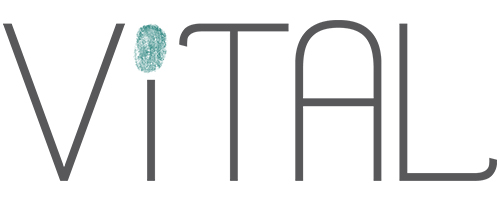 With the influx of digital technology in classrooms, the educational benefits abound for many students. But the accessibility of those gadgets is lacking for approximately six million U.S. students with special needs. This means inclusive learning environments as they are most often perceived, are not so inclusive after all.
With the influx of digital technology in classrooms, the educational benefits abound for many students. But the accessibility of those gadgets is lacking for approximately six million U.S. students with special needs. This means inclusive learning environments as they are most often perceived, are not so inclusive after all.
Three Southern Illinois University Edwardsville alumni, Dr. Jenna Gorlewicz, Jeff Croxell and Corrine Mueller, are forging new technological territory in an effort to remediate those inconsistencies and bring true accessibility for all to mainstream classrooms.
“We are passionate about making sure that every student is given an equal opportunity to reach their full potential in the classroom,” Gorlewicz said. “It’s not just a feel good mission, it’s a necessity for our future.”
Their software and startup company ViTAL (Vibratory Touchscreen Applications for Learning) is an innovation that translates visual content displays into content that can be seen, heard through sounds and felt through vibrations on touchscreens.
Gorlewicz, who earned a bachelor’s in mechanical engineering with minors in physics and math studies from SIUE in 2008, came up with the idea of using multimodal touchscreens to convey graphical concepts in 2010, during her doctoral studies at Vanderbilt University.
“We are passionate about pioneering ViTAL’s touchscreen technology into the classroom, because we want to give all students, regardless of their learning styles or abilities, the chance to participate and succeed, particularly in fields like science, technology, engineering and math,” Gorlewicz said. “The importance of being able to interact and collaborate with your peers is incredibly important in today’s classrooms, and in today’s professions.”
The team of SIUE alumni was established through a network of University connections and innovation efforts. Croxell earned both a bachelor’s in computer engineering and master’s in electrical engineering from the School of Engineering in 2006 and 2009, respectively.
The former classmates met SIUE MBA graduate Corrine Mueller at the University’s Innovation Expo Day in 2014. Additionally, multiple SIUE students have been employed by the company at various times as software developers.
“The ViTAL team all had opportunities to be involved with projects outside of the classroom that were funded and supported by the University and the faculty,” Croxell explained. “Those experiences continue to offer a rich environment for undergraduate students to develop skill sets that take projects from inception to customer delivery.”
According to Mueller, the company is currently supported by external investments, an NSF SBIR (Small Business Innovation Research) Phase I and IB grant, and a grant from the Center for Translation of Rehabilitation Engineering Advances and Technology. It recently submitted an NSF SBIR Phase II, that if funded, will help ViTAL sustain its innovation for the next two years, while also bringing to market both an Android and iOS-compatible version of their software.
ViTAL’s continuous push to commercialization demonstrates the business triumphs of the alumni, but what is most meaningful to the team, is the positive impact this cutting-edge technology will make on millions of lives.
“Many individuals may not instantly connect engineering with helping people, but that is exactly what we’re hoping to do,” Gorlewicz said. “We hope to transform what we currently consider to be “inclusive” classrooms in the U.S. We aim to set standards for providing equal opportunities for students of all learning styles that are unprecedented.”
ViTAL is currently building its network of partnerships with schools to allow for larger scale testing of its software in classrooms. For more information, visit vital-ed.com.